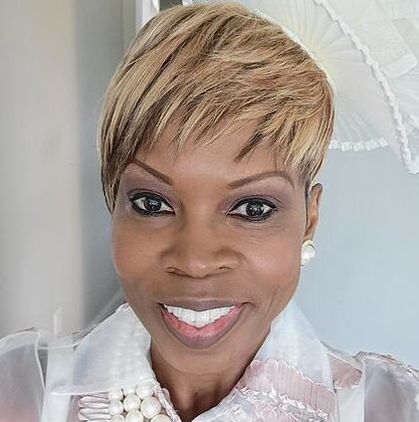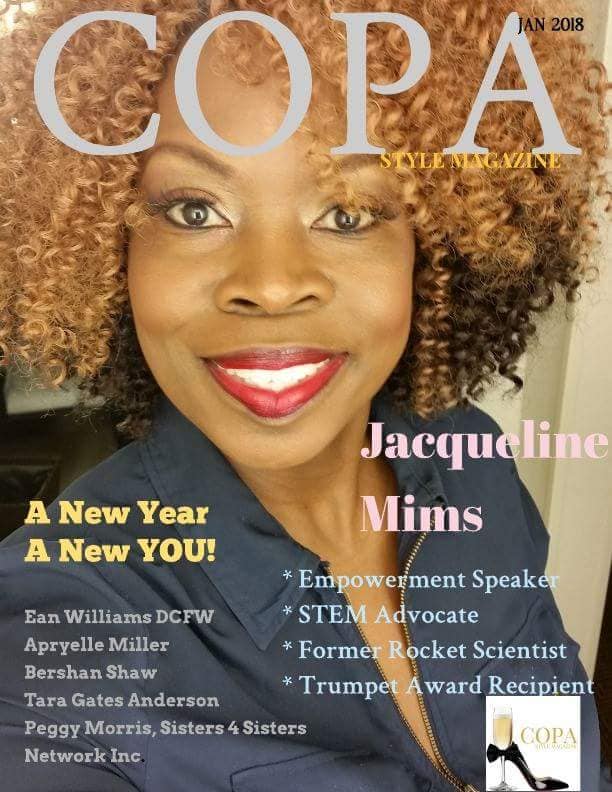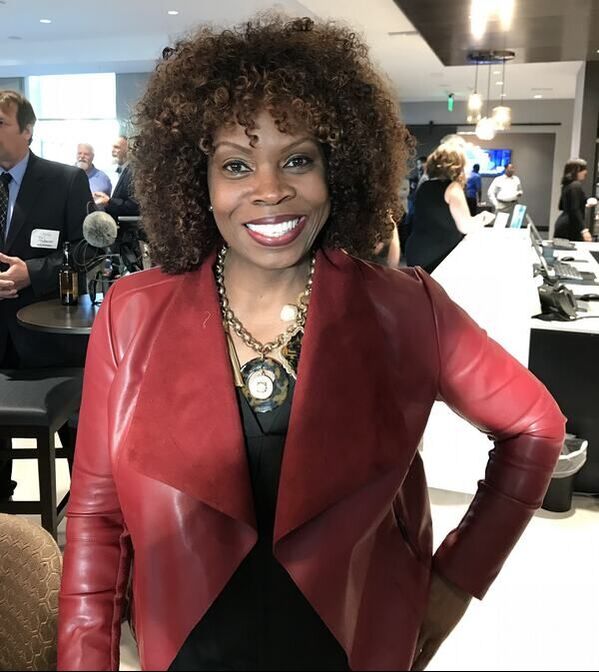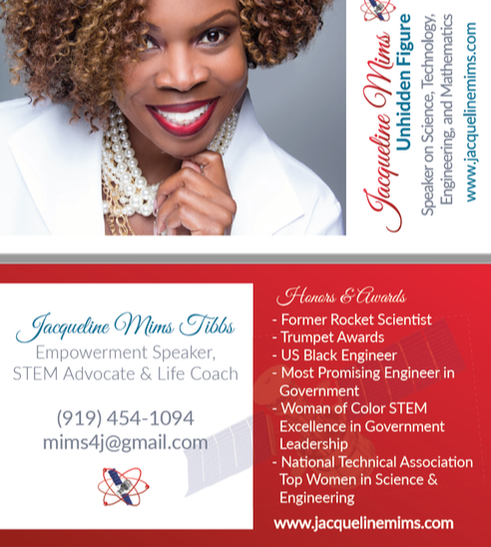Jacqueline Mims
Inspirational Speaker/STEM Advocate

by Rodney Wayne Branche
Copa Style Magazine's Publisher/CEO
Copa Style Magazine's Publisher/CEO
Copa: Where are you from?
Jacqueline: I am originally from the DMV area. I was born in the District of Columbia and raised in Maryland.
Copa: Which schools have you attended?
Jacqueline: I attended Duval High School in Lanham, Maryland. I completed my undergraduate degrees at Towson University in Towson, Maryland. I graduated with honors from the school of Computer Science with a focus on Engineering while also receiving a minor in Business Administration. I later attended George Washington University where I completed my Project Management Professional (PMP) certification.
Jacqueline: I attended Duval High School in Lanham, Maryland. I completed my undergraduate degrees at Towson University in Towson, Maryland. I graduated with honors from the school of Computer Science with a focus on Engineering while also receiving a minor in Business Administration. I later attended George Washington University where I completed my Project Management Professional (PMP) certification.
Copa: When did you develop an interest for Science & Engineering?
Jacqueline: My love affair with Science and Engineering started early in my childhood and was nurtured by my Parents. As a little girl, I looked forward to playtime outside. For me, playtime was a time for learning and exploration. My imagination would run wild with activities and projects I could complete outdoors. Often, I would search the woods for oddly shaped rocks that I would coat with vibrant multi-colored sand found deep in the woods. I also painted inspirational words like “Love” and “Family First” on the unique rocks and give them as gifts to my Parents who inspired me to continue exploration.
My Mom was a Southern Bell who firmly believed that a young woman should be able to fix most appliances in the home. If the vacuum cleaner, lamp or curling iron stopped working, I was taught how to dismantle and repair those items. My Dad also taught me the art of carpentry. I vividly remember working on a project with Dad to disassemble an existing backyard deck to then rebuild a new one. My Parents cultivated and solidified within me a love for Science, Technology, Engineering and Mathematics (STEM) and a belief system that all things were possible for a young African American female who believed in the principles of grit. Grit is the realization that life is not a sprint, it is a marathon if you want to achieve excellence in life. Grit is also embracing the challenges inherent in the process to realizing your dreams. Through the application of grit principles, I was able to overcome the numerous challenges of being an African American woman in a highly technical career path dominated by Caucasian men.
Jacqueline: My love affair with Science and Engineering started early in my childhood and was nurtured by my Parents. As a little girl, I looked forward to playtime outside. For me, playtime was a time for learning and exploration. My imagination would run wild with activities and projects I could complete outdoors. Often, I would search the woods for oddly shaped rocks that I would coat with vibrant multi-colored sand found deep in the woods. I also painted inspirational words like “Love” and “Family First” on the unique rocks and give them as gifts to my Parents who inspired me to continue exploration.
My Mom was a Southern Bell who firmly believed that a young woman should be able to fix most appliances in the home. If the vacuum cleaner, lamp or curling iron stopped working, I was taught how to dismantle and repair those items. My Dad also taught me the art of carpentry. I vividly remember working on a project with Dad to disassemble an existing backyard deck to then rebuild a new one. My Parents cultivated and solidified within me a love for Science, Technology, Engineering and Mathematics (STEM) and a belief system that all things were possible for a young African American female who believed in the principles of grit. Grit is the realization that life is not a sprint, it is a marathon if you want to achieve excellence in life. Grit is also embracing the challenges inherent in the process to realizing your dreams. Through the application of grit principles, I was able to overcome the numerous challenges of being an African American woman in a highly technical career path dominated by Caucasian men.
|
Copa: What was your first engineering related job and how did you feel about it?
Jacqueline: While in high school, I witnessed the fatal launch on January 28, 1986 in which the NASA Space Shuttle Challenger orbiter broke apart 73 seconds into its flight, leading to the deaths of the seven crew members, which included five NASA astronauts and two Payload Specialists. Onboard the Challenger was my sister’s middle school teacher, Christa McAuliffe. This tragedy hit close to home for me, so I made it my mission to join NASA to learn more about space exploration. Therefore, in 1986, I applied for and landed my first job in an engineering related environment as a Secretary at NASA Goddard Space Flight Center (GSFC) in Greenbelt Maryland. During this time, I completed my Administrative duties and I also networked with the Mission Operations Engineers to further my learning about aerospace. In 1987, I left NASA to pursue a technical degree at Towson University. Upon graduation, I was rehired by NASA as an Aerospace Technologist where I developed code to program in orbit Satellite telemetry processing systems. In short, my efforts enabled the successful transmission of space data to the ground and the production of beautiful pictures of galaxies in outer space. As one who often sought new learning and career advancement opportunities, I applied for NASA GSFC’s Spacecraft Command Controller certification program. I am humbled to proclaim that after a year of intense studying and successfully passing the final examination, I am NASA GSFC’s first African American Civil Servant Certified Spacecraft Command Controller. As a direct result of this accomplishment, I received the following honors and awards:
|
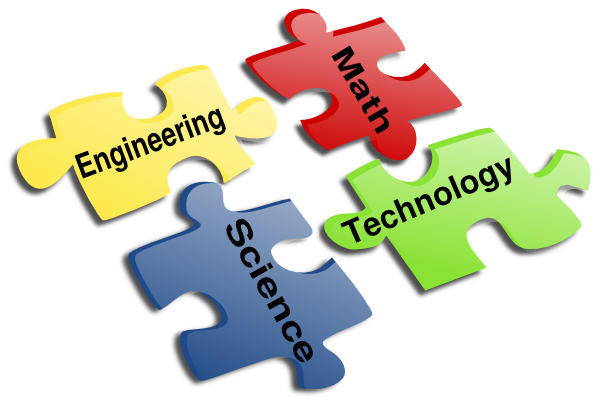
Copa: What is your advice to young girls that want to work in engineering and science?
Jacqueline: Creating the next generation of young women in Science and Engineering is crucial to the US economy. Forty percent of today’s jobs require Science Technology Engineering and Mathematics (STEM) competencies and the fastest growing jobs over the next decade will require STEM skills.
Men currently occupy 75 percent of STEM jobs and women occupy the remaining 25 percent. These statistics are why I am passionate about encouraging and increasing our young girl’s access to opportunities and careers in engineering and science. My advice to young girls is as follows:
Jacqueline: Creating the next generation of young women in Science and Engineering is crucial to the US economy. Forty percent of today’s jobs require Science Technology Engineering and Mathematics (STEM) competencies and the fastest growing jobs over the next decade will require STEM skills.
Men currently occupy 75 percent of STEM jobs and women occupy the remaining 25 percent. These statistics are why I am passionate about encouraging and increasing our young girl’s access to opportunities and careers in engineering and science. My advice to young girls is as follows:
- Understand that Science and Engineering is about trial and error. Solutions are rarely found on the first try. Oftentimes, girls have more pressure to be perfect than boys. Therefore, they give up if they don’t get it right during the first try. DON’T GIVE UP!
- Know that STEM careers contribute to the well-being of society. Women often have an innate nature to help and to nurture.
- Find a female mentor that will inspire you, build your confidence and guide you thru your academic and professional career.
- Don’t be afraid to seek a tutor to enhance your learning while taking Computer Science, Physics, Calculus and Engineering courses. Tutors can make your learning experience fun.
Jacqueline Mims receives her "Trumpet Award."
Copa: Why do you think that students in America should take Science and Engineering more seriously?
Jacqueline: Students in America should take science and engineering more seriously because STEM skills are essential in our fast-paced digital world. Students who learn and participate in science and technology educational opportunities will develop the core skills required to thrive in our competitive and ever changing global economy. Also, with these skills being in such high demand, studying science and engineering can lead to a wide range of exciting and high paying careers.
Jacqueline: Students in America should take science and engineering more seriously because STEM skills are essential in our fast-paced digital world. Students who learn and participate in science and technology educational opportunities will develop the core skills required to thrive in our competitive and ever changing global economy. Also, with these skills being in such high demand, studying science and engineering can lead to a wide range of exciting and high paying careers.
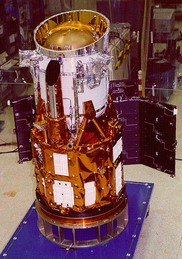 The Wide Field Infrared Explorer (WIRE)
The Wide Field Infrared Explorer (WIRE)
Copa: Please share with our readers the latest project you have been working on with NASA and it’s developments.
Jacquline: During my last mission at NASA, I was appointed as the Ground Systems Implementation Manager of the Wide Field Infrared Explorer (WIRE). WIRE attempted to determine how stars are formed. During launch, the satellite began to tumble uncontrollably and the satellite’s lens was destroyed as a result of being exposed to the sun’s rays prematurely. In life, I believe that even the worse situations or events have positive aspects. I project managed the transition of this failed in orbit satellite to Bowie State University in Bowie, Maryland. This enabled a historically Black University to train its students in the field of Spacecraft Operations. I have retired from my career at NASA. Currently, I am an Independent Contractor working in the Information Technology (IT) sector where I manage multi-million dollar projects for Fortune 500 companies.
Jacquline: During my last mission at NASA, I was appointed as the Ground Systems Implementation Manager of the Wide Field Infrared Explorer (WIRE). WIRE attempted to determine how stars are formed. During launch, the satellite began to tumble uncontrollably and the satellite’s lens was destroyed as a result of being exposed to the sun’s rays prematurely. In life, I believe that even the worse situations or events have positive aspects. I project managed the transition of this failed in orbit satellite to Bowie State University in Bowie, Maryland. This enabled a historically Black University to train its students in the field of Spacecraft Operations. I have retired from my career at NASA. Currently, I am an Independent Contractor working in the Information Technology (IT) sector where I manage multi-million dollar projects for Fortune 500 companies.
Copa: Why is it that most children in American aren’t focused on STEM related courses and what can be done to address it.
Jacqueline: Children in America are not focused on STEM related courses because, for the most part, these subjects are neither easy nor intuitive. STEM learning requires repetitive trial and error. If a student lacks the confidence required to succeed, he or she will succumb to the pressures and quit. Girls, in particular, are taught that they must look and be perfect. This mindset does not support the philosophy of trial and error multiple times. To address these issues, Parents and Educators must adjust how they help students succeed in STEM fields. To help students feel confident in these fields, we must begin to offer praise and encouragement and recognize the fact that there is an inherent difference in how boys and girls learn or grasp technology. We must offer process praise for student’s perseverance, growth and the use of errors to learn. Studies have shown that this produces an achievement mindset.
Jacqueline: Children in America are not focused on STEM related courses because, for the most part, these subjects are neither easy nor intuitive. STEM learning requires repetitive trial and error. If a student lacks the confidence required to succeed, he or she will succumb to the pressures and quit. Girls, in particular, are taught that they must look and be perfect. This mindset does not support the philosophy of trial and error multiple times. To address these issues, Parents and Educators must adjust how they help students succeed in STEM fields. To help students feel confident in these fields, we must begin to offer praise and encouragement and recognize the fact that there is an inherent difference in how boys and girls learn or grasp technology. We must offer process praise for student’s perseverance, growth and the use of errors to learn. Studies have shown that this produces an achievement mindset.
Copa: During the sixties, why do you think this country was very fascinated with science and engineering. What made things shift in the focus for our children today?
Jacqueline: I feel that there was a fascination with science and engineering in the sixties due to the Soviet and US race to outer space. The “space race” was a Cold War competition between the United States and the Soviet Union to develop aerospace capabilities. In 1957, the Soviets launched Sputnik, the first artificial satellite and this came as a surprise to most Americans. A few years later, in 1962, John Glenn became the first American to enter outer space. The space race peaked in 1969 with the US landing of the first man on the moon with the Apollo-11 launch. I feel that the fact that we live in an instant society and we have technology readily available has caused our children to become consumers of technology and not developers of technology.
Jacqueline: I feel that there was a fascination with science and engineering in the sixties due to the Soviet and US race to outer space. The “space race” was a Cold War competition between the United States and the Soviet Union to develop aerospace capabilities. In 1957, the Soviets launched Sputnik, the first artificial satellite and this came as a surprise to most Americans. A few years later, in 1962, John Glenn became the first American to enter outer space. The space race peaked in 1969 with the US landing of the first man on the moon with the Apollo-11 launch. I feel that the fact that we live in an instant society and we have technology readily available has caused our children to become consumers of technology and not developers of technology.
Copa: What does the future hold for Jacqueline Mims?
Jacqueline: My future is shining bright like a brilliant diamond. The well-thought-of Maya Angelou once said “When you learn, teach, when you get, give.” A Scottish novelist and poet, Robert Stevenson, also so eloquently stated ““Don’t judge each day by the harvest you reap but by the seeds that you plant.” It is a wonderful feeling to utilize the experiences from my past passion to begin walking in my purpose while here on earth. Now that that my young adults have graduated college and are flourishing citizens in society, I am focusing my energy on mentoring and sharing my STEM experiences (the successes and failures) with women and young minority students to ensure they are prepared to enter the pipeline of available educational and career opportunities in the technology sector. I am also co-authoring a book titled “Flawed Flesh, Perfecting Purpose” which is scheduled to launch early in 2018. In my vignette, I tell of my journey in STEM and how I was inspired by my SHE-heroes of the movie “Hidden Figures”, Katherine Johnson, Mary Jackson and Dorothy Vaughan, who also succeeded against numerous odds in the male dominated cultures of NASA and IBM. As a certified John Maxwell Empowerment Speaker, Life Coach and Trainer, I have begun accepting local and International speaking engagements for Technology Conferences, Leadership Training and Women’s Empowerment events for the 2018 fiscal year. Also, I will be attending the 2018 Trumpet Awards festivities in Atlanta, Georgia in January as a former honoree. Remember to shoot for the moon in your life and should you miss, you will be amongst the stars. In each and every one of us lie greatness and a purpose waiting to be fulfilled. Love the life you live and live the life you love!
Jacqueline: My future is shining bright like a brilliant diamond. The well-thought-of Maya Angelou once said “When you learn, teach, when you get, give.” A Scottish novelist and poet, Robert Stevenson, also so eloquently stated ““Don’t judge each day by the harvest you reap but by the seeds that you plant.” It is a wonderful feeling to utilize the experiences from my past passion to begin walking in my purpose while here on earth. Now that that my young adults have graduated college and are flourishing citizens in society, I am focusing my energy on mentoring and sharing my STEM experiences (the successes and failures) with women and young minority students to ensure they are prepared to enter the pipeline of available educational and career opportunities in the technology sector. I am also co-authoring a book titled “Flawed Flesh, Perfecting Purpose” which is scheduled to launch early in 2018. In my vignette, I tell of my journey in STEM and how I was inspired by my SHE-heroes of the movie “Hidden Figures”, Katherine Johnson, Mary Jackson and Dorothy Vaughan, who also succeeded against numerous odds in the male dominated cultures of NASA and IBM. As a certified John Maxwell Empowerment Speaker, Life Coach and Trainer, I have begun accepting local and International speaking engagements for Technology Conferences, Leadership Training and Women’s Empowerment events for the 2018 fiscal year. Also, I will be attending the 2018 Trumpet Awards festivities in Atlanta, Georgia in January as a former honoree. Remember to shoot for the moon in your life and should you miss, you will be amongst the stars. In each and every one of us lie greatness and a purpose waiting to be fulfilled. Love the life you live and live the life you love!

